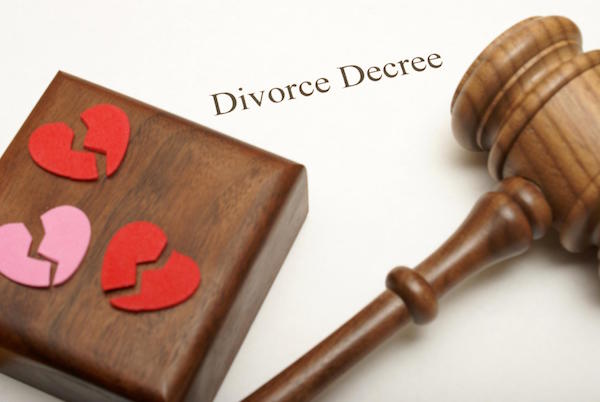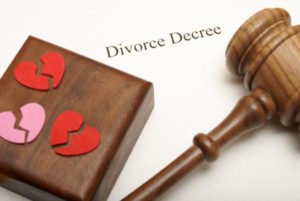Other Documents in Addition to Your Will
- After separating, you should create a new Will. You should also review
your powers of attorney, advance directives, trusts, proxy, delegation, etc.
You may well need to formally revoke these important legal documents,
so that your ‘ex’ cannot continue to control aspects of your life. However to be valid, these ‘revocation’ documents must be communicated to the individuals whom you had previously appointed, so these are not as confidential as the Will. - It is important to prepare new documents if you are already separated or if separation is inevitable because you do not want your soon-to-be ex to make financial and medical decisions for you, and possibly not for your kids as well.
- Prepare a power of attorney to select someone to handle your finances if you become disabled. Again, if you had a power of attorney created before your breakup, have it revoked. This means you should notify your banks to indicate the prior power of attorney is invalid.
- Change passwords on all online accounts and notify the service providers in writing that the former spouse is not permitted access to your records.
- Change your beneficiary under your own life insurance, whether whole life insurance or term insurance. Again, don’t just rely on language in a divorce decree to make sure your wishes are followed. If the ex-spouse is required to obtain life insurance to pay to you or your children, see proof of the insurance in writing with beneficiary designation.
- Keep your personal papers at a location where an ex-spouse or a child’s parent can’t steal or destroy them.
- Talk to your lawyer about the advantage of trusts: They protect beneficiaries if there is a lawsuit and judgment against them.
- Make sure the trustee for any funds designated for your children is the “right” trustee. The former in-laws may no longer be the best choice.
- Consider re-titling real estate, cars, and other assets which may currently be in joint names with the ex.
- If there is a mortgage on any of your real estate, consider whether you will be able to refinance and service the loan yourself following the breakup, or whether it may need to be sold. Any refinance will require consent of the bank or finance company.
- A new advance care directive should be prepared to remove the ex and select a trusted family member or friend to carry out your end-of-life medical wishes. This can contain specific language to advise doctors and the hospital who should have access to your medical information. Remember that until you receive the final ‘Divorce Decree Absolute’ your ex remains your ‘next of kin’. You don’t want an estranged person to be able to make medical decisions or “pull the plug.” A divorce decree does not remove the ex-spouse listed on old medical powers of attorney or Power of Guardianship, or advance care directive. New documents (which revoke the older documents) must be prepared.
- You may wish to ask your lawyer whether you can take out half of the assets in a joint account.
- If you own a small business, you should prepare a contingency plan for someone (other than your estranged spouse) to run your business should you become disabled. Similarly, if you control a trust or company, you should consider what (if any) role you want your ex to play in them going forward.
- You might wish to have your lawyer conduct an independent review of the titling, registration and ownership of assets in which you may have an interest (control or possession), including real property and shares.
- If you own assets as joint tenants with your ex, then upon your sudden death they will automatically receive those assets by right of survivorship. You may wish to ask your lawyer about creation or severance of joint tenancy of asset-ownership.
- Just as you can create a ‘pre-nup’ before getting married, there are documents known as Binding Financial Agreements which you can create at any stage of a relationship – even when it is ending. If you decide to get remarried, consider having your lawyer prepare a Binding Financial Agreement so your children can inherit your assets, rather than your new spouse, if that is your wish.
- In blended families, trusts can be useful because a Will can be revocable by a competent person without telling his or her spouse.
Powers of Attorney
- Under a Power of Attorney document, a trusted ‘agent’ or ‘attorney’ is authorised to make decisions and sign documents on your behalf in relation to your legal and financial affairs. An Enduring Power of Attorney applies from the time the document is fully executed, and persists even if you lose mental capacity, continuing on until your death. Allowing such a document to remain in effect after separation can be very dangerous. It is like giving your former partner a blank cheque book, with every cheque already signed. They can use this power to buy & sell property and access bank accounts.
- It is important to note that a person’s appointment under a Power of Attorney is only terminated once that person is notified of the document’s revocation. This means that written notice should be provided to your former agent to inform them that the document has been cancelled and that their appointment as attorney is no longer effective. There is a template form of revocation that is published in most States. It is also good practice to ask your former partner to confirm they have not transacted on your behalf (acted as your attorney) prior to the revocation, or to give you details of any transaction that they have carried out. This can then be taken into account in the property settlement negotiations.
Death Benefit Nominations
- Your superannuation fund does not form part of your estate, and is therefore not subject to the terms of your Will.
- If there is no binding death benefit nomination in place at the time of your death, the trustee of your fund has the discretion to decide who benefits from your super, provided their decision is ‘fair and reasonable’.
- For many people, their superannuation represents one of their biggest assets. Younger people typically hold their life insurance through super but may have limited personal assets, as they are still building their wealth. Whereas for older couples, they may operate a self-managed superannuation fund (SMSF) and be putting a lot of their spare money into increasing the value of super in preparation for retirement.
- If you do not have a binding superannuation death benefit nomination in place, the trustee of your super fund decides who gets your super death benefits when you die. Some death benefit nominations also have a lapsing date (usually 3 years from the date they are made), and if a nomination has lapsed it will not be binding on the trustee. For this reason, it is important to keep nominations up to date.
- Recent Court decisions have made it clear that your super does not form part of your estate and does not automatically tie-in with the terms of your Will. They also stress the importance of having an up-to-date and valid binding death benefits nomination in place for your super benefits. In general, a super fund trustee does not pay death benefits to the estate of a deceased member unless there are no dependants or there is a valid binding death benefits nomination in favour of the estate.
- If you separate, you should update your superannuation death benefit nomination as soon as possible to safeguard your super. If you have a binding nomination in place naming your former partner as the beneficiary, you should make a new binding nomination directing your superannuation death benefits either to your children or to your estate. Any superannuation death benefits that are paid to your estate will be dealt with as directed by your Will, so it is important to make sure that your Will then directs your super death benefits to your new beneficiaries.
- If you and your former partner share a SMSF, it is even more important to ensure that your binding death benefit nomination is updated following separation. This is because if you die your former partner is likely to be left as the sole trustee of the SMSF. As the sole trustee, your former partner may then get to decide where to pay your super death benefits (including to themselves) unless you have a binding nomination in place.
- Changing beneficiary designations after divorce is crucial. Retirement investments and other accounts with a designated beneficiary typically do not have an automatic revocation, and you must proactively change the beneficiary designation on those investments and accounts. Many individuals fail to change their life insurance beneficiary designation, and as a result, wind up leaving the proceeds of their policy to a former spouse. Cases involving ex-spouses and subsequent spouses or other family members fighting over life insurance proceeds because the beneficiary designation was never changed after a divorce are becoming common.
Conclusion
This list contains possible items for you to consider and perhaps to discuss with your lawyer, and is not intended to be an exhaustive list. Some of these items may not be applicable in your situation.
Separation & divorce is a big life change, and it usually requires a complete overhaul of your existing estate planning documents. We have a wealth of experience in helping separated people update their estate planning documents to best protect them and their children.
If you are going through a separation and would like some assistance, call us.
SPECIAL REPORT “7 Things You Must Know
Before You Make Your Will”
In this report you will Learn:
Why home-made Wills can be a LOT more expensive than you might think.
The secret weapons used by the rich & powerful to protect their assets, and transfer their wealth two or three generations ahead.
How Estate and Trustee Companies make BIG money from “free” Wills.
The Most Common Estate Planning Mistakes, how they can cost your family a fortune, and How to Avoid Them.
The Elements of a Sound Estate Plan – why a Will alone is not enough.
How to Make Sure Your Assets Stay in Your Family and are not lost to creditors, lawsuits or ex-spouses.
How to guard against challenges to your Estate after you’re gone.

